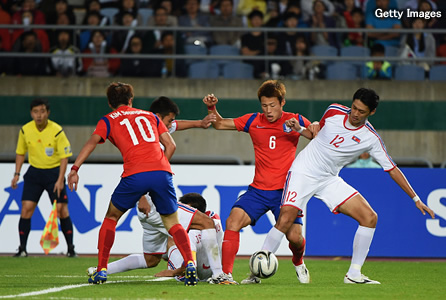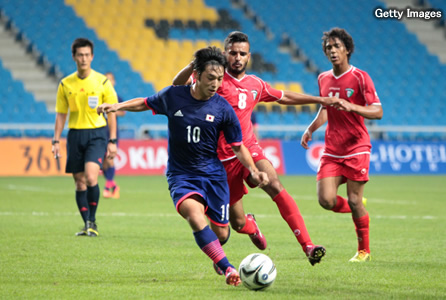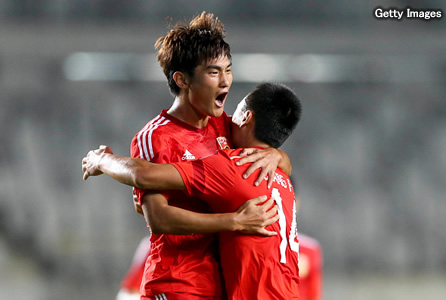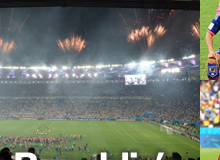In the 17th Asian Games men’s tournament, held from 14th September to 2nd October in Incheon, five members of the East Asian Football Federation (EAFF) made their presence felt by together reaching the last 16 after coming through the group stage consisting of 29 teams.
For men’s football in the competition sometimes called the “Asian Olympic Games,” Under-23 players were eligible with three over-age members permitted for registration.
Hong Kong finished second in Group B to advance to the last 16. With three over-age players, captain and goalkeeper Yapp Hung Fai, midfielder Ju Yingzhi and forward Christian Annan supporting their backbone, they also managed a 1-1 draw against top-placed Uzbekistan.
In the last 16 of the tournament, however, Hong Kong lost 3-0 to Group A leaders Korea Republic. Striker Lam Hok Hei, who has already been called up by the senior international team, and his attacking colleagues were powerless in front of Korea Republic’s resolute defence.

China played their group F games with only U-21 players. Looking ahead to Rio 2016 Olympic Games, their coach Fu Bo intended to have this promising generation build up their experience in international football.
Battling against DPRK and Pakistan, they managed to secure second spot. China lost 3-0 to DPRK, but won 1-0 against Pakistan with a goal from 21-year-old striker Chang Feiya.
China faced Thailand in the round of 16, only to lose 2-0. The Under-23 Thai side pressed hard and overwhelmed their opponents 24-6 in the total number of shots, but China’s defence worked hard led by Guangzhou Evergrande goalkeeper Fang Jingqi as well as captain and defender Shi Ke.
Japan also selected to pick a team of Under-21 players. Makoto Teguramori introduced a concept of “total attack and defence as a team”, vowing: “We will aim for the gold medal.
After defeating Kuwait 4-1, Japan lost 3-1 to Iraq. However, they coasted to a 4-0 victory against Nepal to earn second place in their group before beating Palestine by the same score to comfortably move into the last eight.
In the quarter-finals, Japan faced their arch-rivals Korea Republic. While the home side pushed their opponents back supported by vociferous local fans, Japan defended well with resilience. But they conceded a penalty at the closing stage and eventually lost 1-0, which ended their hopes of retaining the title.

Having knocked out EAFF colleagues Hong Kong and Japan in the last 16 and quarter-finals, respectively, Korea Republic sealed a fine 2-0 win against Thailand in the semi-finals. The host country consisting of Under-23 members plus over-age players improved their effectiveness game by game.
Hard battle continued until late in extra time in the final
In the other block, DPRK made it all the way to the final. The semi-finals against football giants Iraq went into extra time after a scoreless 90 minutes, but Jong Ingwan, who also plays for the senior team, scored to secure a 1-0 win.
The final saw a thrilling battle in front of both goals. Both finalists had to manage a busy schedule with only two days off between matches from the quarter-finals on, but played as if they had no fatigue and aggressively pushed forward for a goal.
However, goals failed to arrive in 90 minutes. Spearheaded by over-age goalkeeper Kim Seung-Gyu, Korea Republic had marked six consecutive clean sheets since the first game of the group stage while DPRK had finished four games out of their five without conceding. Dangerous shots from both sides caused cheers and screams, but the game moved into extra time scoreless.
Just before the second half of extra time ended, the first and decisive goal came in a match where each side’s quality collided. After a corner from the left caused confusion, Rim Chang-Woo found the net with a right-foot shot to bring the host side the Asian Games title for the first time in 28 years. Korea Republic last won gold in the 1986 version held in Seoul.













